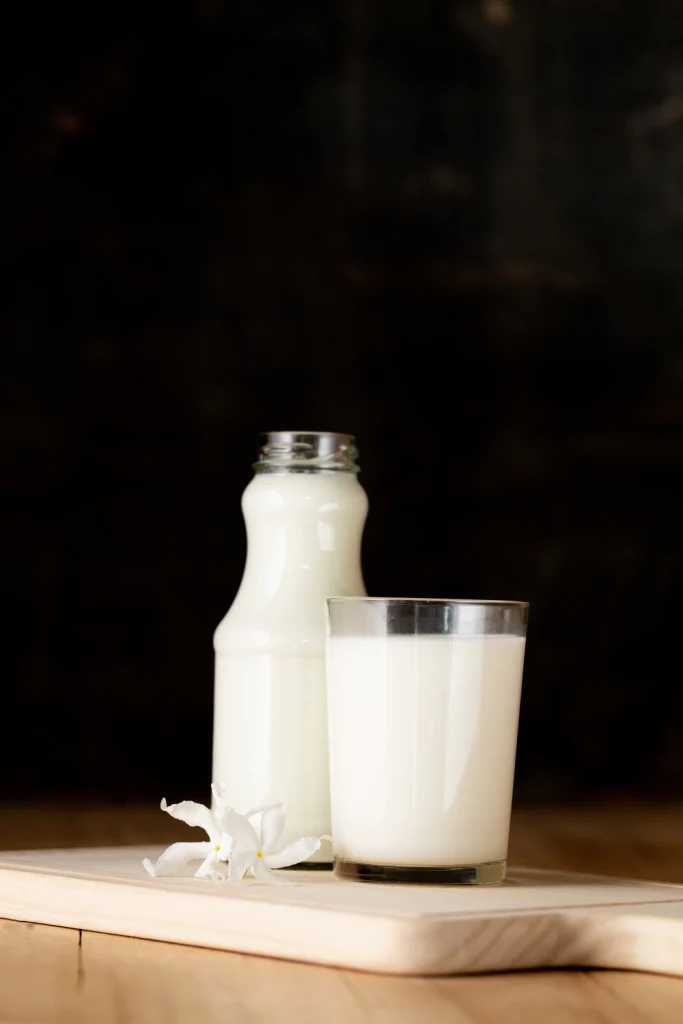Milk tea is a delightful beverage that harmoniously blends tea and milk. This drink has become a favorite in various parts of the world, with different flavors and serving styles.
But does milk tea offer health benefits? This article will discuss what milk tea is, its nutritional content, the health benefits it may provide, and how to consume it healthily.
What Is Milk Tea?
Milk tea is a beverage that combines tea with milk. It is widely popular, and nowadays, modern milk teas such as “teh tarik”, Thai tea, and milk tea with various toppings are widely available in the market.
The type of tea commonly used to make milk tea is black tea, which has a slightly bitter taste. Milk is added to neutralize the bitterness, giving it a sweeter and creamier flavor.
Milk tea can be enjoyed either cold, with ice cubes added, or warm. It has now gained popularity as bubble tea, with various toppings and flavor options.
Nutritional Content of Milk Tea
The nutritional content of milk tea varies depending on the type of tea and milk used. Tea contains antioxidants, caffeine, amino acids, and minerals such as magnesium, potassium, and calcium, which offer various health benefits.
Milk also contains nutrients beneficial to health. It is a source of carbohydrates, protein, healthy fats, vitamins, and minerals such as calcium and magnesium.
Therefore, the combination of tea and milk is believed to offer health benefits when consumed wisely.
However, modern milk teas available on the market often contain creamers, added sweeteners, and various toppings. This can lead to a high sugar and calorie content, making milk tea unhealthy if consumed frequently.
Health Benefits of Milk Tea
Tea and milk each have their own benefits. But can the combination of tea and milk offer health advantages?
Research suggests that while tea is rich in antioxidants like flavonoids, adding milk to tea may reduce some of its benefits. The proteins in milk can bind with the flavonoids in tea, decreasing the effectiveness of these antioxidants.
Nonetheless, there are some benefits to consuming milk tea in moderation. Here are a few:
1. Source of Calcium
Milk is a good source of calcium. Adding milk to tea can increase your calcium intake, which is important for bone and dental health. Calcium also plays a role in improving muscle and nerve function.
2. Boosts Energy
Tea contains caffeine, which can provide an energy boost. Milk adds extra calories, serving as a source of energy for the body.
3. Promotes Relaxation
Milk tea contains tryptophan, which can enhance mood and reduce stress.
4. Supports Skin Health
Milk contains vitamin D, which stimulates the formation of antioxidants that can protect the skin from free radicals. Additionally, tea also contains antioxidants, offering further protection for the skin.
Who Should Avoid Consuming Milk Tea?
Despite its many benefits, milk tea may not be suitable for everyone. People sensitive to caffeine should avoid drinking milk tea because of its caffeine content. Those intolerant to caffeine may experience symptoms such as stomach pain, nausea, heart palpitations, and insomnia.
Individuals with sleep issues or anxiety should limit their milk tea consumption, especially in the afternoon or evening.
Additionally, those with lactose intolerance may experience digestive issues when using cow’s milk. In such cases, substituting cow’s milk with plant-based milk, such as cashew milk, can be an alternative.
How to Consume Milk Tea Healthily?
To reap the benefits of milk tea, here are a few tips you can try:
1. Limit Sugar Usage
Avoid adding extra sugar to prevent excessive sugar intake. Additionally, limit the addition of sweet toppings.
2. Choose Low-fat and Low-sugar Milk
Opting for low-fat and low-sugar milk can be a healthier choice. Plant-based milk can also be an alternative.
3. Watch the Portion Size
Consume milk tea in reasonable portions, such as one cup a day, to prevent excess calorie and caffeine intake.
Arummi’s Recommendation: Make milk tea using Arummi Cashew Milk!
If you’re a fan of milk tea, you can use Arummi cashew milk to make it. Arummi cashew milk is made from selected cashews that are rich in vitamins and minerals. Additionally, it is lactose-free, making it easier to digest.
For milk tea, you can choose Arummi cashew milk Barista. You can find it at a supermarket near you!









































